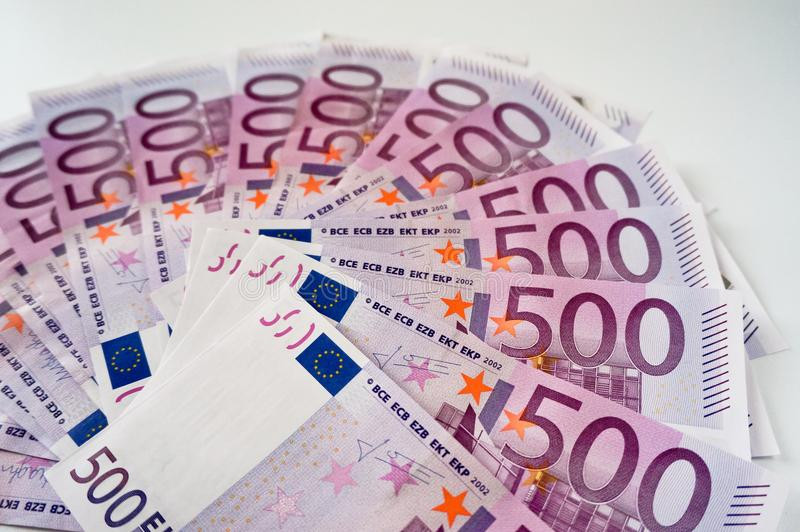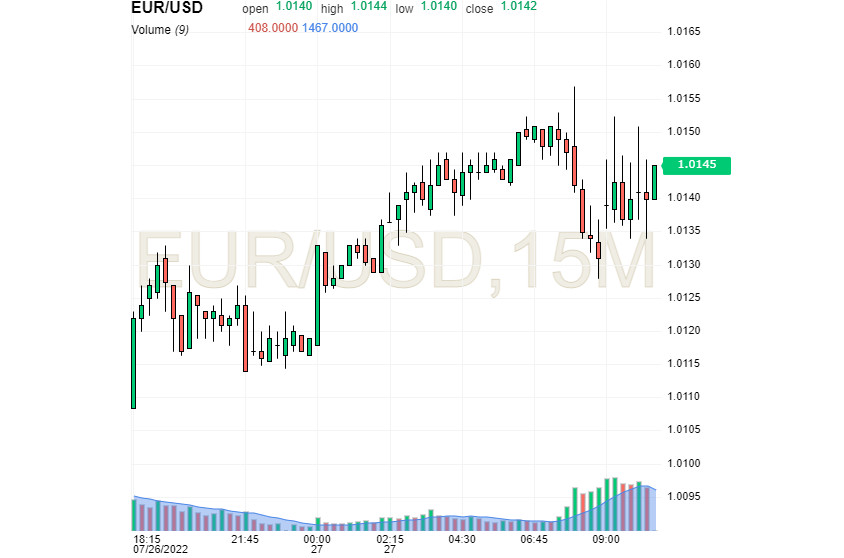
The euro once again demonstrated its dependence on the situation on the gas market. Difficulties encountered by the euro bloc countries regarding the payment of energy resources had a negative impact on the euro's dynamics. The euro's current task is to find a balance in the EUR/USD pair.
Significant pressure on the euro's dynamics was exerted by fears about the possibility of another reduction in Russian gas supplies. This topic is relevant for European countries dependent on the supply of blue fuel. Difficulties in resolving this issue jeopardize the euro's succeeding growth, experts believe.
Against this backdrop, the threat of a recession looms over the eurozone, which is complicated by the blue fuel conjuncture. The next round of the energy crisis in Europe reduces the single currency's chances to recover, which was violated after reaching parity with the dollar.
European countries are trying to solve the emerging problems in their own way. France has begun to limit domestic energy consumption, and Germany is in the process of state harmonization of moderate fuel consumption. The deteriorating situation with gas supplies and the lack of alternative mechanisms for solving the problems that have arisen are alarming signals for the euro.
Amid current difficulties, the euro exchange rate reached parity against the USD, but then won back its losses. However, the euro is walking on thin ice, risking repeating destructive actions at any moment. Support for the single currency, which grew moderately on Wednesday, was provided by the expectation of positive data on consumer confidence in the German economy. According to preliminary estimates, this indicator increased to -28.9 points after the previous mark (-27.4 points) recorded last month. The EUR/USD pair traded up to 1.0145 on Wednesday morning, July 27, trying to gain a foothold in current positions.

According to currency strategists at UniCredit Bank, EUR/USD's ability to stay above 1.0100 will help the euro survive the Federal Reserve's 75 bp rate hike expected today. Global markets are focused on the results of the Fed meeting. Note that an increase of 75 bp already included in current prices. At the same time, some experts do not rule out a 100 bp rate hike. According to analysts, the markets are fully prepared for any decision by the US central bank, although a 100 bp increase is expected. Unlikely and undesirable. Such actions are unlikely to help the dollar's growth, since the appreciation of the latter is a settled issue, experts conclude.
At the same time, the euro's positions after the Fed meeting remain shaky. The next interest rate hike by the US central bank will not add optimism to the euro, which is overcome by gas problems. Add fuel to the fire messages about the restriction of Russian gas supplies to Europe, knocking out the ground from under the feet of the euro.
According to experts, at the beginning of this week, the euro was among the outsiders. The reason is the difficulties with the supply of blue fuel through the Nord Stream gas pipeline and with the return of the turbine after repair. The situation is complicated by the increase in the wholesale price of gas by 17%, to 192 euros/MWh. At the same time, the European price for natural gas TTF Cal23 exceeded 150 euros per MWh, reaching the highest value for this contract.
Measures taken by Russia to reduce natural gas supplies to the EU have intensified global competition for blue fuel. According to Bloomberg, against this background, Asian importers are increasing their purchases of LNG for the winter, trying to get ahead of Europe. As a result, LNG prices may exceed $40 per barrel, experts believe. Note that Europe imports 35% of its energy from Russia, but the latter's energy income from trade with the EU is 70%. At the same time, these deliveries are made through pipelines that cannot be redirected to Asia.
Against this backdrop, the euro rate showed a decline, causing traders and investors to worry about the future of the single currency. At the moment, gas prices remain a ticking time bomb for the markets and for the EUR, risking "detonation" in the coming months. According to experts, a further reduction in the supply of blue fuel to the EU and rising prices for raw materials deprive the euro of chances for an effective and long-term recovery.
 English
English 
 Русский
Русский Bahasa Indonesia
Bahasa Indonesia Bahasa Malay
Bahasa Malay ไทย
ไทย Español
Español Deutsch
Deutsch Български
Български Français
Français Tiếng Việt
Tiếng Việt 中文
中文 বাংলা
বাংলা हिन्दी
हिन्दी Čeština
Čeština Українська
Українська Română
Română

